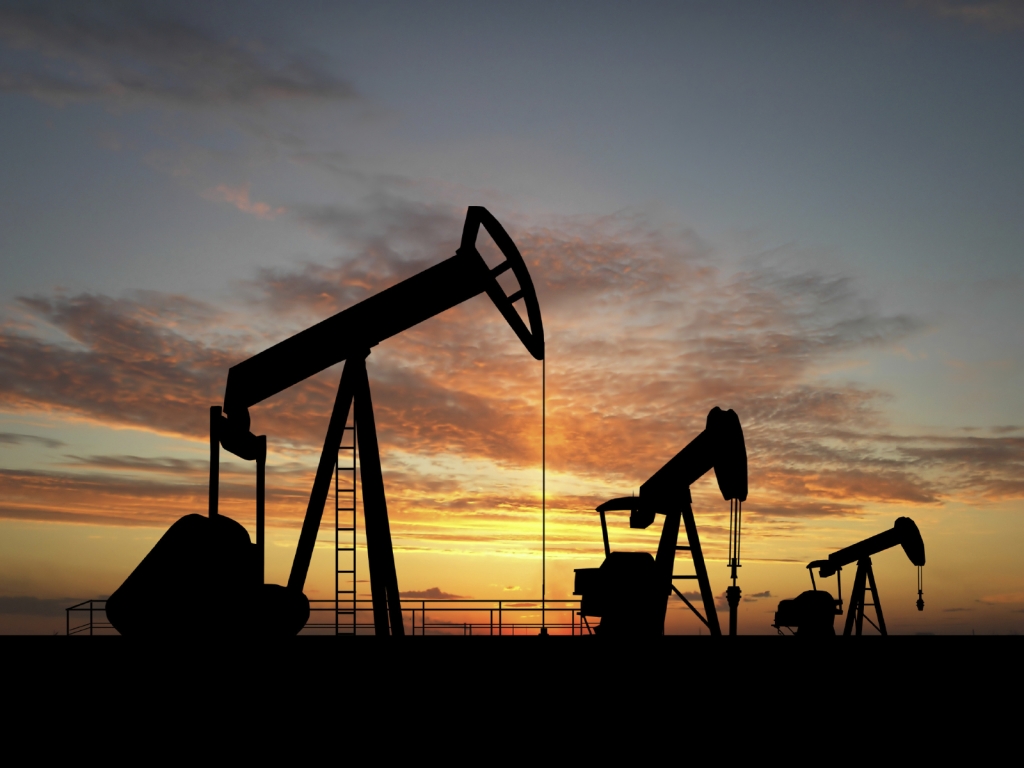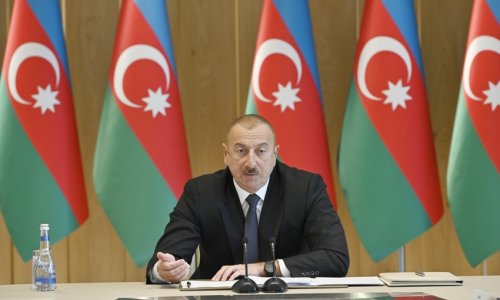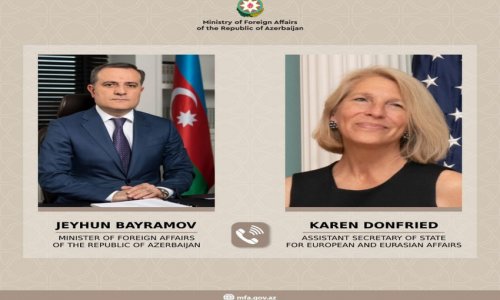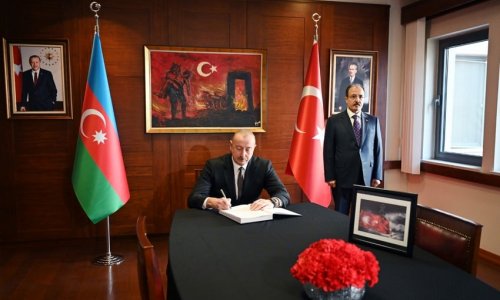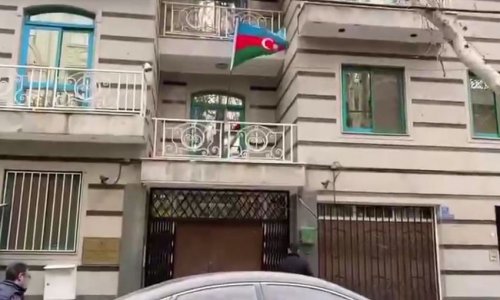By Ilgar Gurbanov
Regardless of suffering of occupation from very near neighbourhood in early independence, Azerbaijan, by virtue of its vast energy resources and addressing them rationally, managed to achieve quite rapid economic development. The country, regardless of geopolitical situation in the region, however, is still able to run its foreign policy in a balanced manner without sacrificing its neither national interests nor pragmatic relations with near and far neighbours.
Meanwhile, huge energy reserves of Azerbaijan in the Caspian basin, as well as its favourable geographical location render the country a strategic energy pivot for Europe. Since the independence, the EU and Azerbaijan have been cooperating closely in many areas, including within the framework of European Neighbourhood Policy and Eastern Partnership. The post-Soviet Azerbaijan consolidated its strategic significance by inking "The Deal of Century” in 1994, which paved a way for the Caspian oil to the world markets following the construction of the Baku-Tbilisi-Ceyhan oil pipeline. The BTC pipeline, with daily 1 million barrels throughput capacity, pumps the Azerbaijani oil from Azeri-Chirag-Guneshli oil field in the Caspian Sea through Georgian territories to Turkey’s Ceyhan port in the Mediterranean Sea.
The second grandiose project was the Baku-Tbilisi-Erzurum gas pipeline, which brings Azerbaijani gas of Shah Deniz field to Georgia and Turkey as of 2006. Following the failure of Nabucco project, which was to start from Turkey-Georgia borders and lead to Europe, Azerbaijan and Turkey jointly initiated the "Trans-Anatolian Gas Pipeline” project in June 2012. Consequently, they did not let the "Southern Gas Corridor” concept fail. TANAP substituted the eastern flank of Nabucco pipeline, meanwhile shortened it to "Nabucco-West”. However, because of lack of enough financing and coordination, "Nabucco-West” lost versus "Trans-Adriatic Pipeline”; latter has been chosen as a final leg of Southern Gas Corridor to transfer Azerbaijani gas from TANAP to Europe through Greek, Albanian and Italian territories.
However, the significance of Azerbaijan should not be bounded to the cliché of "oil and gas pumping country for Europe” only. A bridge-like geographical position between Central Asia and Europe facilitates not only energy transportation but also transportation of non-lethal stuffs and military personnel to/from Afghanistan for NATO military missions.
Notwithstanding, Azerbaijan faces the EU’s adamant manner and normative criticism. While, the EU prioritizes the imposition of fundamental values in its structural foreign policy with partner countries, Azerbaijan’s first foreign policy priority remains the "Nagorno-Karabakh conflict”, though no active role of the EU was observed so far therein. The occupation of Azerbaijan’s territories (Nagorno-Karabakh and adjacent regions) by Armenia remains a main obstacle to increasing stability and prosperity in the region. Azerbaijan hopes for equal partnership without a strict conditionality clause. Therefore, Azerbaijan prefers to distinguish political (human rights and democratization) and strategic dimension (Nagorno-Karabakh conflict and energy security) of relations with EU.
In this regard, Azerbaijan proposed a country-specific new cooperation model – "Strategic Partnership Agreement” – alternative to the EU’s Association Agreement, embracing the strategic issues and a guarantee for territorial integrity, to upgrade the relations with the EU. However, recently a certain group of politicians with anti-Azerbaijani bias in the European Parliament has initiated a Motion for Resolution against Azerbaijan, which called for the suspension of negotiations on "Strategic Partnership Agreement” between the EU and Azerbaijan; however, the EU launched the negotiations for the same agreement with Armenia, meanwhile a member of Eurasian Economic Union.
The Resolution also stipulated the specific sanctions for Azerbaijan. While, the EU imposed sanctions over Russia and certain Russian officials because of Ukraine crisis, no single sanctions have been imposed over Armenia (as well as separatist leaders in Karabakh) because of its ongoing occupation of Azerbaijan’s territories and triggering the separatism there. That was definitely a disappointing moment for EU-Azerbaijani relations. Because, Azerbaijan is not pleased of double standards or being put in the same basket with Armenia. Therefore, in response, Azerbaijan’s Parliament has passed a Resolution implying the suspension of its participation in the "Euronest” Parliamentary Assembly.
The Resolution of European Parliament also urged not to send the EU’s Election Observation Mission for November 2015 parliamentary elections in Azerbaijan. Although, the EU and the OSCE’s Office for Democratic Institutions and Human Rights refused to send an observer mission for the parliamentary elections in Azerbaijan, more than 500 observers from international organizations, including Parliamentary Assembly of the Council of Europe, Organisation of Islamic Cooperation, Commonwealth of Independent States, Organization of the Black Sea Economic Cooperation, Turkic Council and other organizations have observed the elections. The elections also hosted around 66.000 local observers. Regardless of condemnations from external voices, the parliamentary elections passed smoothly, confirmed by the international observers as well. Reportedly, 767 candidates had run in the parliamentary elections for 125 seats in the Milli Majlis (National Parliament of Azerbaijan). The electoral law enables all of the candidates to conduct their pre-electoral campaigns freely on an equal basis, by meeting their voters and through social media and other media outlets.
Nonetheless, the EU should continue its efforts to work more closely with official Baku for Azerbaijan’s modernization and transformation, in the areas of good governance, elections, rule of law or diversification of the country’s economy, rather than isolate it by statements. Actually, Azerbaijani leadership lately, in their turn, embarked on more reforms within the government itself. Thus, the structural changes within power and law enforcement structures, including the dismissal of those who allegedly involved in corruption and other racketeering issues; the facilitation of granting entrepreneurship licences by transferring it from the Ministry of Economic Development to the "ASAN Service” State Agency, the most transparent public entity; and simplification of the customs inspections etc. are the good gestures for ongoing reforms within country.
Finally, instead of declaratory endeavours, Azerbaijan expects more active role of the EU in a peaceful solution of the "Nagorno-Karabakh conflict”, which has also social impact over the population. Thus, the latest poll, conducted by French research company OpinionWay, says that the "Nagorno-Karabakh conflict” is considered the most important problem by 66.5% of voters, followed by the economy with 30%.
(neurope.eu)
www.ann.az
Follow us !

